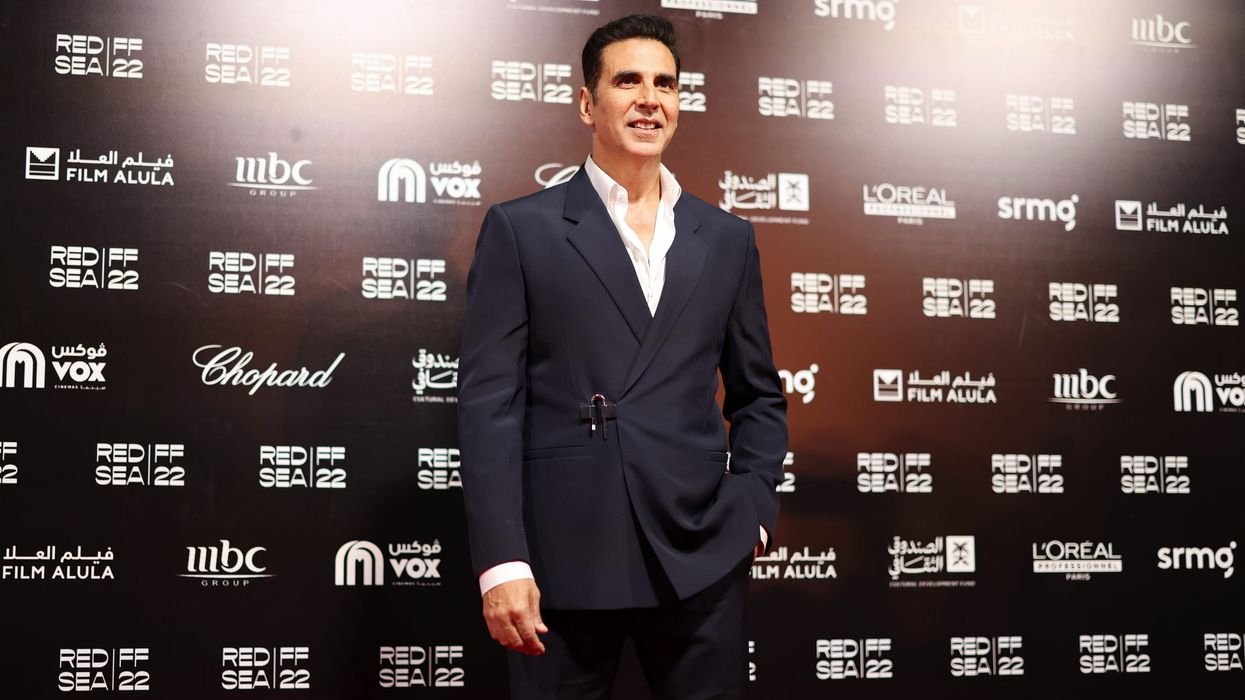Superstar Akshay Kumar says he seeks encouragement from his audiences to make movies that bring about a societal change, irrespective of how they perform at the box office.
The 56-year-old actor, whose latest film Mission Raniganj opened in theatres on Friday, said the Hindi cinema is going through a "nice phase" where both commercial and content-driven movies are doing good business.
“We are going through a very nice phase where people are doing all kinds of films and they are working. I have done both kinds of films (content and masala entertainers). Don't put pressure on the film (Mission Raniganj) by thinking that it will do business.
"I can do that kind of film (commercial) and get that kind of numbers also. But I am happy doing a film that brings a change in the society," Akshay said in a group interview here.
The actor gave the example of his movies -- Toilet: Ek Prem Katha (2017) and Pad Man (2018) -- and said when he signed these films, his decision raised many eyebrows.
“When I made Toilet: Ek Prem Katha, everybody told me what kind of title this is. I was told, ‘Are you mad? Who makes a film on a subject like toilets?’ "Please don't discourage me by thinking about what business it (my film) is going to do. Give me courage that at least these kinds of films are being made and we are showing it to our children," Akshay added.
With Pad Man, which chronicled the true-life story of a social activist-entrepreneur from Coimbatore, who made low-cost sanitary pads for women in rural areas, Akshay said many men around him were apprehensive about talking about the subject in public.
“I did the film on sanitary pads at a time when nobody would dare to hold a sanitary pad in their hand. People weren't ready to touch it. I remember that at an event where I was the chief guest, I was standing with someone, I won't name the person, and that person’s PA came to me and whispered in my ears saying, ‘Don’t give a pad to him because 'accha nahi lagta'.' This is the kind of thinking (that we have),” he said.
His previous film OMG 2 has started streaming on Netflix and the actor said he is happy that the movie will reach the country's youth now.
The Hindi movie, starring Pankaj Tripathi and Akshay in the lead, explores various issues concerning teenagers, including sex education. It was released in theatres on August 11.
Mission Raniganj, a rescue thriller, is directed by Tinu Suresh Desai, who had helmed Rustom, for which Akshay won the Best Actor National Award.
The film also features Parineeti Chopra, Kumud Mishra, Pavan Malhotra, Ravi Kishan, Varun Badola, Dibyendu Bhattacharya, Rajesh Sharma, Virendra Saxena, Shishir Sharma, Ananth Mahadevan, Jameel Khan, Sudhir Pandey, Bachan Pachera, Mukesh Bhatt, and Omkar Das Manikpuri.




